''The Tatars have had severe degradation in education. This has never happened in our history''
7 Days: from the lack of Tatar school books to the reconstruction of Polukamushki in Zelenodolsk
Why do Tatar schools lack translated books? What's the reason for a low business activity in Bavly? Where's the line between extremism and artistic idea? In a review of Realnoe Vremya, correspondents of 7 Days informative and analytic programme, which airs on TNV channel, looked for answers to these and other questions.
New status of translated books
Tatar schools lack certified books on different subjects in the Tatar language. Earlier children could be taught with national translated books: it was possible to take an official book in the Russian language, for instance, on Physics, translate it into any language of the peoples of Russia, print and hand it out at school. But everything changed last year. Now even a word-by-word translated book must have scientific and pedagogical examination like a book written from scratch. This process isn't fast. Teachers, in turn, are afraid of teaching children with non-certified books.
Two books at once lay on the table in Maths class in Staroyuzum secondary school in Atna District. One of them, the shabby one, in the Tatar language, is open, knowledge is taken from there. The other, which is still new, with wet printer's ink, is in the Russian language modestly lays aside. According to the law on education, only officially permitted books by the Ministry of Education of Russia can be used in class. This is why the Maths book in the Russian language must be present now, according to the law. The book is present, but it's not in demand.
New selection rules have been introduced since 2016. It was decided at the level of the federal government, a book must go through not only academic or scientific but also public control. Perhaps the public's evaluation was too strict, but it's unclear what it is and where it comes from, but all national books were eliminated from the roster. But the most surprising thing in this story is that almost all sources in the Russian language remained on the federal list. For instance, a book on Biology for the 8 th grade in the Russian language is legal, while its exact Tatar copy was prepared a sad fate.
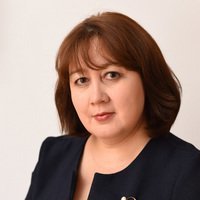 ''Once books had pedagogical, scientific examinations. It's a very expensive pleasure. To be on the federal list, a publishing house spends big money. We offered that it was enough to have another examination for a book's correspondence to its original to include our books to this list. This option is considered,'' tells Director of the National Education Administration of the Tatarstan Ministry of Education and Science Lilia Akhmetzyanova.
''Once books had pedagogical, scientific examinations. It's a very expensive pleasure. To be on the federal list, a publishing house spends big money. We offered that it was enough to have another examination for a book's correspondence to its original to include our books to this list. This option is considered,'' tells Director of the National Education Administration of the Tatarstan Ministry of Education and Science Lilia Akhmetzyanova.
''It takes at least three years to have translated books included to the federal roster,'' says chief scientific researcher of the National Education History and Theory Centre of the Sh. Marjani Institute of History of the Tatarstan Academy of Sciences Marat Lotfullin. It's almost an eternity for an educational system. A new generation grows up, children graduate from school during this time.
''Now books are used only as a teaching guide. But the case is that key books must be indicated on educational programmes. Key books are only in the Russian language,'' Lotfullin explains.
At the moment, during this period of transition, the books, which were excluded from the federal list, translated into the Tatar language are still printed in Tatarstan, but their number of copies is low.
''As they aren't on the federal list, now they are legitimate as teaching guides. We don't divest schools of these editions because they were printed by publishing houses included to the federal list. They have the right to print teaching guides too,'' says Akhmetzyanova.
Translated teaching guides can be used at school. They're given at Tatar schools now to read at home. But it's not the core learning material. In pedagogics, a teaching guide is an addition to a book. Teaching guides in the Tatar language have had quite an uncertain status since this year. And such a situation have arisen for the first time in the lasting practice in the national education of the country. Books in languages of peoples of Russia were officially permitted even under Soviet power, they weren't a material at hand.
''The Tatars have had severe degradation in education in the mother tongue. This has never happened in our history. The Tatars must have books. It's a major issue,'' Marat Lotfullin is sure.
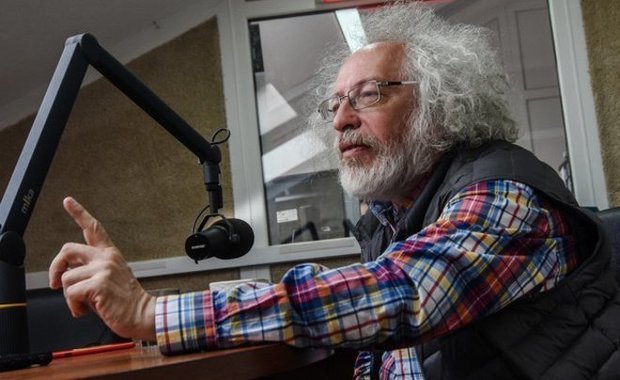
Tatar speech heard in Moscow
Speak Tatar programme began to air on Echo of Moscow radio on 22 August.
''I'd been thinking about the way of telling about all-Russian culture for a long time. We see a division into national flats in the last years. It's important to show the audience that the Russian language actually consists of languages of different peoples. We also studied Moscow ethnicities. And Tatars in Moscow are the third ethnicity after Russians and Ukrainians. We also have a Ukrainian programme. So we wanted to show how close we are to each other. We will develop this educational history,'' told editor-in-chief of Echo of Moscow Aleksey Venediktov in a talk with Director General of Novy Vek TV and Radio Company Ilshat Aminov.
''I was and remain one of the main critics of the law on the mother tongue, which our Ministry of Education offered. When we criticise our neighbours in Latvia and Ukraine, then we should also criticise ours,'' thinks Venediktov.
The programme airs on Echo of Moscow radio every day three times a day: in the morning, in the afternoon and in the evening. Now it's possible to hear a Tatar speech in Moscow at any point in the city. One just needs to tune to 91,2 FM. The programme is created on Novy Arbat, in Echo of Moscow's editorial. Its appearance in the air is editor-in-chief of Echo of Moscow Aleksey Venediktov's personal initiative, and its fulfilment is a job of authors themselves, there are two.
Liliana Safina is a candidate of philological sciences, director of Tatar language courses in the regional Tatar national and cultural autonomy of Moscow.
''Now we're talking about place names. I chose 20 words first, I left only seven. I studied, watched, thought of the moments I wasn't sure about,'' Safina tells.
''I support that everyone who lives in Russia should understand it's a multi-ethnic country. There are different languages, different ethnicities here. One should respect it and aspire to know each other better,'' thinks deputy editor-in-chief of Echo of Moscow Maksim Kurnikov.
Maksim Kurnikov is the author and co-host of Speak Tatar programme. According to him, everything began with a job in a local radio station in Ufa. He already paid attention that programmes in the national and Russian languages seemed to live in parallel worlds. For Maksim who grew up in the multi-ethnic environment of Kazakhstan, it wasn't a discovery, but this pushed him to an idea: to tell about the mutual penetration of languages and cultures and simultaneously learn languages of peoples of Russia.
''People who receive the post, analyse what people write us say that they receive hundreds of messages a day with gratitude for this programme,'' Kurnikov tells.
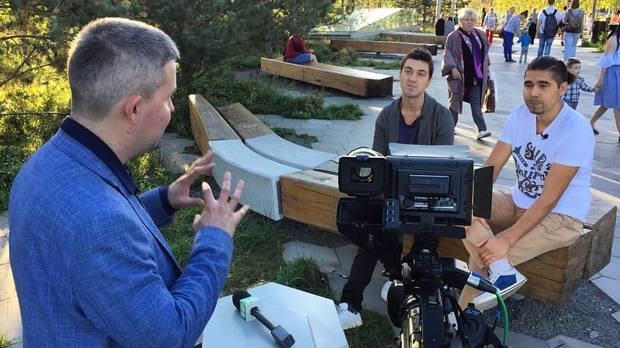
The programme's authors note they decided to explain first the words that everyone knows well. But many people don't guess they came from the Tatar language. The programme airs three times a day – it's three words. One can learn seven words a day. The editions are repeated during the week.
Famous Moscow journalist and producer Andrey Nikolayev says it's personally important for him to both hear and know the language because his mother spoke it. Moscow has a certain programme with the linguistic environment. But a solution can always be found, thinks Andrey. And he notices at the same time: Tatar must be trendy, attractive to those who want to speak it to become really in demand. Such people shouldn't be loaded with complicated grammar. It's better making the lessons themselves interesting and informative like in the editions of the programme on Echo of Moscow.
''There must be something that can be used, applied. It must be interesting, one should have a desire to read in original,'' Nikolayev is sure.
Rustam Baybikov is a vocalist of Shurale Tatar band. Shurale has been performing on all possible sites in different cities of the country for 8 years already. Their performances in Moscow are held in both the State Kremlin Palace and the Variety Theatre, in Zaryadie park. The guys say it's the way they want to draw attention to both Tatar music and the language. The more creative ideas there are, the more active the spectator is.
''We've recently listened to Echo of Moscow, we've been pleasantly surprised, Tatar words were explained there. Having surprised, we wrote the editorial: 'We're a Tatar group, don't you want our songs to release on the radio?'' the artists tell.
Akhat Mukhamedov is a former first-rank captain. Aged 74, he entered the Gorky Literary Institute, graduated from it brilliantly. Love for the Tatar language brought him to the Tatar Cultural Centre. He holds literary evenings in the capital's libraries at the age of 80. The Tatar language, Mukhamedov notes, must develop.
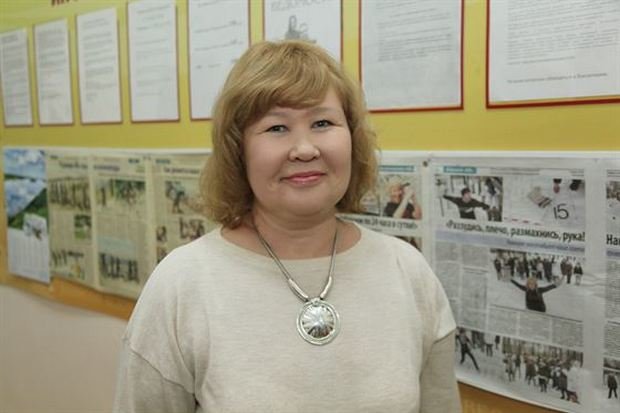
One click from like to court
Nowadays many people are really punished on the Article 282 of the Criminal Code of Russia ''Incitement to Hatred or Enmity as well as Violation of Human Dignity'' for reposts on the Internet, comments to other people's pictures and caricatures. There are cases of criminal persecution for publishing satiric texts or caricatures of certain clergy and functionaries on a social network's page.
Advocate Eteri Ilyina from Kazan thinks the population's legal illiteracy is one of the reasons why the number of criminal cases on such articles as terrorism or extremism on the Internet have started to grow in Russia in recent time.
''We have few social advertisements and many explanations of legislation. Legislation is very big, but people live in a legal vacuum. They never open and look at laws because they don't think an action is a crime,'' thinks Ilyina.
According to the definition of the Big Russian Encyclopaedic Dictionary, ''extremism'' ( extremus from Latin) means extreme, commitment to extreme views and measures. The maximum penalty for extremist crimes on the Internet is up to 6 years of imprisonment by the Article 282 of the Criminal Code of Russia.
It's the punishment awaiting 23-year-old Maria Motuznaya from Barnaul. In May 2018, she posted a photo of the procession of Cossacks on her personal page in a social network, and Gogol's famous phrase was used as a comment. In the claimants' opinion, the picture hurt feelings of believers. Investigators went further. And other photos saved by Motuznaya as early as 2015 arose during the investigation. Yes, other, even deleted photos are stored on the Internet. The social network's administration provided the investigation detailed information about how many times the Altay extremist changed her nickname on the page, what IP addresses she used to surf the Internet and what phone numbers were linked with the page.
One can get the punishment of up to 5 years of imprisonment according to the Part 2 of the Article 280 of the Criminal Code of Russia. As an example, Eteri Ilyina shows a message she got from her acquaintance: ''If we swallow the pension reform, our generation will be remembered in history as a generation of scums. Then we will completely lose the social conquest we've had in the last 20 years.''
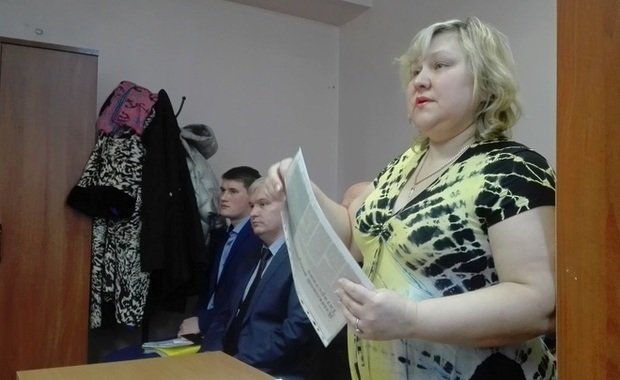
''I saw signs of extremism, incitement to social discord in this message,'' Ilyina is sure.
Olga Ziyatdinova's case is the most notorious case in Tatarstan. The woman became famous after trying to sue almost 3 million rubles from authorities for forcing her son to study the Tatar language. In the end, a criminal case on extremist statements about the Tatars in social networks opened against her.
All people who became participants in criminal cases on these articles are automatically listed by the Federal Financial Monitoring Service before sentencing, while all bank accounts are immediately blocked. Now 8,669 Russians are on the list, some 150 of them are residents of Tatarstan or come from the region. There are no statistics about certain regions due to dynamically changing data. The base is updated at least once a week, the Federal Financial Monitoring Service explained.
''I will say to you from the beginning it's fraught with the job! Any respected firm has a security service, it's enough to run through, not to mention the criminal record, which is present. You will basically won't be granted a loan. It's the end, the road is closed,'' says advocate Aleksandr Kogan.
Where are an artistic idea and pure propaganda or rehabilitation of fascism? Many copies and human fates have already been broken in search for an answer to this question. Journalist Lina Danilevich from Smolensk was fined 1,000 rubles for her own yard's photo in the archive because fascist swastika was depicted in it. 30 users of the social network had the time to repost the photo, another 140 people liked it.
''I recommend lawmakers to work with scientists more closely. And when so-called flagrant cases are found, both court and investigation sometimes make mistakes. And we wouldn't like the compliance with legislation on extremism to stimulate extremist activity more. And people should feel justice,'' thinks professor Igor Bikeyev.
Writer and State Duma deputy Sergey Shargunov told about the necessity to correct concepts in the law on extremism during the recent direct line with the Russian president. Experts from All-Russia People's Front and the Prosecutor General's Office were to present the project of amendments to the anti-extremism law to the president of the country until 15 September.
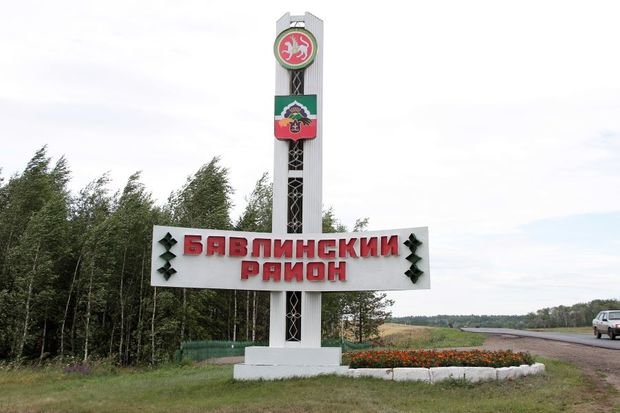
Why do enterprises feel bad in Bavly?
The business activity index in Tatarstan districts reduced in 2018, while Bavly District was the leader of the fall. 7 Days' correspondents tried to find out the cause of low indicators.
Resident of Bavly Lyutsia Gilmutdinova began to produce plaster figures not a long time ago. She registered her business one year ago. Previously she worked as an accountant, a shop director. At that moment she couldn't imagine she could run her own business. But as the woman tells, her soul always wanted to do art. Lyutsia has many clients. Orders come from not only Tatarstan but also other regions. The young businesswoman is ready to develop and work more. But everything comes down to space. A garage next to the house was re-equipped as a workshop and warehouse of ready goods. But this area isn't enough now.
The young entrepreneur doesn't have the money to purchase a bigger room now. It's also expensive to take out a loan. Lyutsia Gilmutdinova decided to try another option and turned to the district's officials. She asked to lease a suitable area for the workshop.
''There were offers, but these rooms were unsuitable for work. Much investment was needed there to launch my business there,'' tells Gilmutdinova.
Four months have passed, while the problem hasn't been solved yet. Someone will say the case is unique and untypical. The entrepreneur can't get along with the local authorities, this also happens. But far from it. Every business is important for such a district as Bavly because it's not only replenishment of the local treasury but also additional job opportunities. At the moment indicators of entrepreneurship development in the district are very modest.
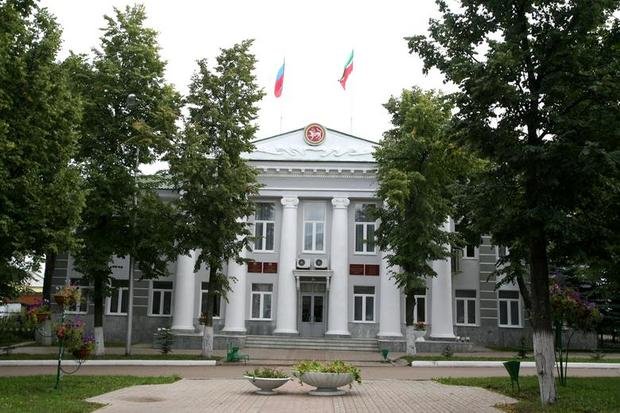
Although the district has entrepreneurs who are ready to work and develop their business on their own land. They don't aspire to move to other districts and big cities. But businesspeople say relations with the administration of Bavly District are tense. Earlier there was a public council of entrepreneurs, there were meetings with the district's head. Now it's in the past.
''We offered an initiative to create a public council again. But as the administration rejected, we remained as an initiative group,'' entrepreneur Guliera Mursalimova shares.
But the executive committee's representatives have another version. They say they don't stop working with entrepreneurs and even offer to elect a business representative again.
''We want to hire an aide to the head on entrepreneurship development. And the question is open. In other words, we offered them to choose who of the entrepreneurs wanted to chair this job,'' says director of the Executive Committee of Bavly Municipal District Ilyas Guzairov.
Entrepreneurs themselves say they don't receive big support from the administration, even moral. They say feedback is needed anyway, while there is almost none.
They put an example of the case of an abandoned building of a training and production factory. Entrepreneurs say they offered the district's administration to sell it to them for a reasonable price. As a result, the facility was up for auction where a businessman from a neighbouring republic purchased it for just 220,000 rubles. Now the building is sold on Avito for 3 million 900,000 rubles.
The executive committee's representative says the facility has been up for auction three times. In addition, its price wasn't announced.
The picture is so contradictory. Both the entrepreneurs and the local authorities have their own truth. Of course, it's just a small share of problems of enterprises in Bavly. But there are objective data that make to start thinking.
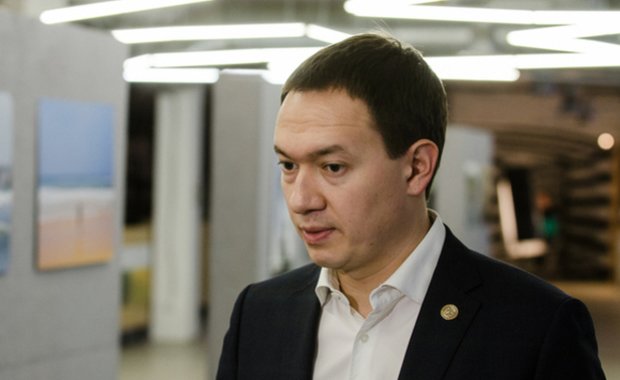
The share of SMEs accounts for just a bit more than 10% of gross territorial product in Bavly District. It's more than twice less than in the republic on average. All small enterprises in Bavly are mainly focused on commerce, then it's construction and realty. The volume of payments to the budget from this sector is also quite humble – just 13%. One of the reasons for such low indicators is perhaps hidden in the city's geographical location. A city in the neighbouring republic with more developed SMEs is located 30 minutes far from Bavly – Oktyabrsky. According to the municipal district's official page, nowadays there are 4,000 small- and medium-sized enterprises. And the share of payments to the local budget from their activity is 31,5%.
What to do to improve the situation? Sadly, there isn't any universal mechanism suitable for every district, says Plenipotentiary Representative on Protection of Entrepreneurs' Right under the Tatarstan President Timur Nagumanov. It will be necessary to do separate analysis in every case and look for a solution of problems of private businesses.
''What can be done, certain actions aimed to improve the business climate depend on the local authorities only. Here deep and detailed analysis is needed. Perhaps there is some deviation, controllers probably exaggerate, some agency probably fails,'' replies Timur Nagumanov.
On the other hand, the task to improve the business climate is common. It mustn't be a one-sided match. Not everything depends on the local administration. Businesspeople themselves will need and have to find out many things.
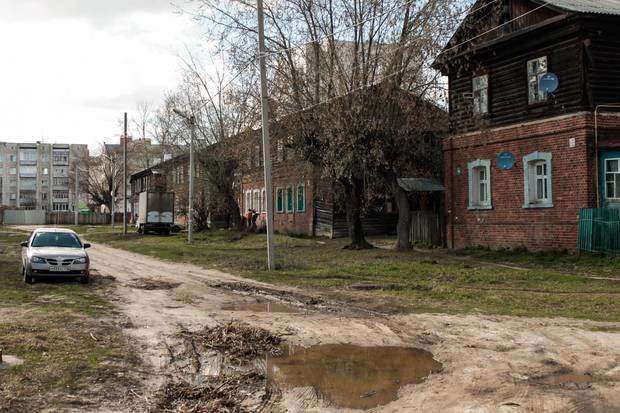
Fate of Polukamushki in Zelenodolsk
A reconstruction programme of the oldest micro-district Polukamushki kicked off in Zelenodolsk. It's eight houses where 52 families live. People also call Polukamushki the ''French Quarter'' because it was built by Frenchmen who arrived here in 1898 to erect a metallurgic factory, today's POZIS. Engineers of the French-Russian joint enterprise built a quarter here, which is quite up-to-date by today's standards. It's 28 identical houses, very wide streets and alleys. It was an elite settlement. Future Minister of Shipbuilding of the USSR Boris Butoma and Future Ally Minister of the Aviation Industry Mikhail Khrunichev lived here later. They already lived in Polukamushki, the quarter has been bearing this name for almost 100 years.
The houses looked like stone one-storeyed buildings first. They stood in this form for almost 30 years. Volga-Visher Joint Stock Company went bankrupt during this time, and the Frenchmen left the city, the revolution broke out, and an acute housing crisis came. There was a necessity to construct additional square metres. Attics on the stone houses were built of wood. This is how the name of the houses appeared: Polukamushki stands for semi-stone, semi-wooden houses.
People will continue living in the first eight houses of the quarter whose façade looks out on Engels Street. Like the rest of the houses, they will be improved, all necessary mains will be laid. Even sewerage isn't everywhere in Polukamushki. 60 million rubles are needed only to lay the mains. Another 500 million rubles are needed for the reconstruction. The project presupposes shops, museums, bakeries, cafes, kindergartens, family centres and even a registry office. It's important the quarter will be not only inhabited but it will also be peopled. And every local is individuality and an attraction.
Zaytunva Korotkova who has been living here for 50 years can be called a female frontman of Polukamushki. It was she whom the Tatarstan president visited and had a cup of tea with in 2016, she won the right to live here, on her own land till the end.
''I won't move anywhere from here,'' claims Korotkova. Her house wasn't recognised unsafe, unlike many others. But the old woman doesn't sit on her laurels and doesn't fence off changes. She's up for a new life, new people, new paints on the grey and old landscape out of the window. The old woman puts an example of Irkutsk as a careful attitude.
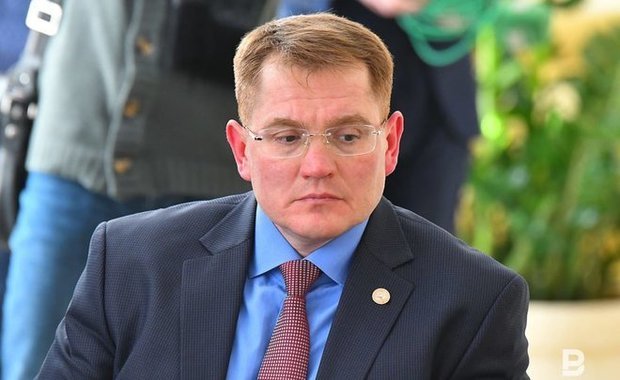
The Quarter No. 130 in Irkutsk was Polukamushki's twin brother in the recent past – a repulsive territory in the heart of the city with miraculously alive wooden huts – it's today's most popular attraction of the city. Most of the huts were demolished but reconstructed. And it was done quite with taste. This not harsh eclecticism with a full set of functions for life without sleep and rest attracts crowds of tourists from all over the country. But it's not the future of Polukamushki. Still, there is a difference. All buildings in Polukamushki won't be demolished to build new ones. And there is more history, but the principle is the same – revitalisation, which means revival, a recreation of what yesterday was considered rubbish.
''Is it possible to refuse it? It's such a beauty,'' says Korotkova about her own quarter. ''Now all houses are identical,'' the woman adds.
''Polukamushki will have a new life, a new future,'' head of Zelenodolsk District Aleksandr Tygin forecasts.